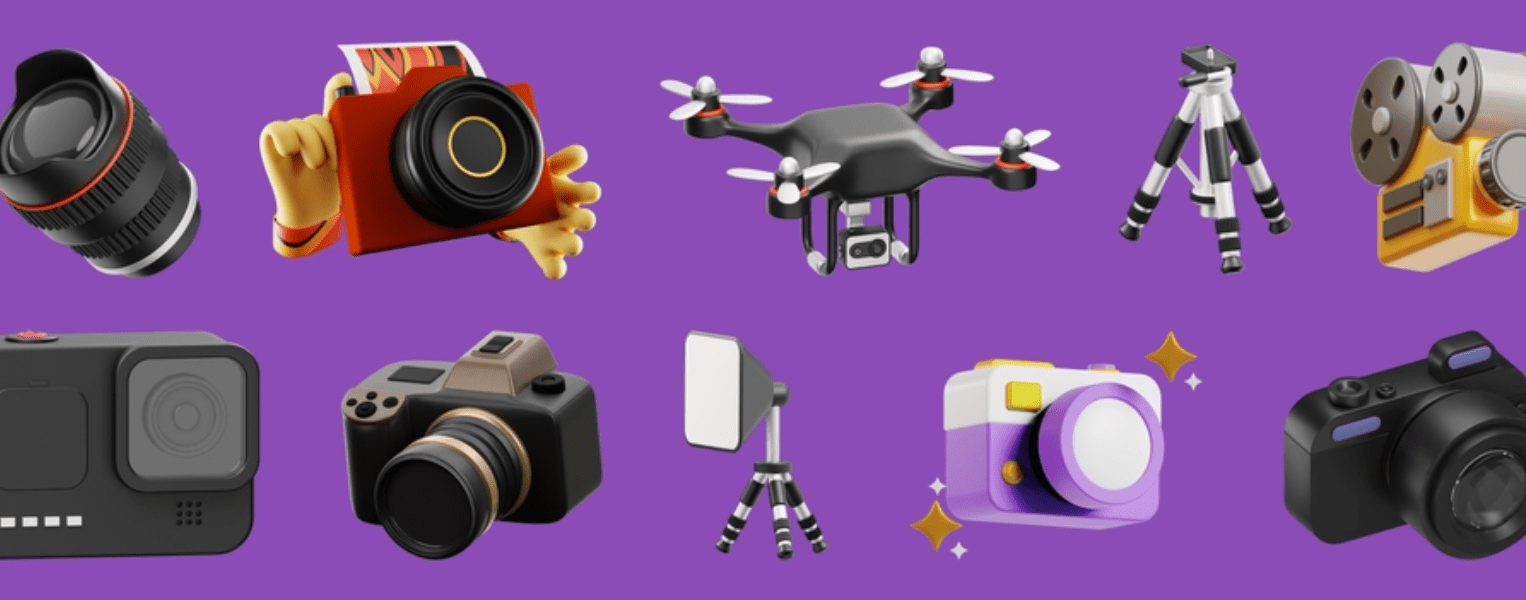
Photography has transformed from a hobby to a highly respected profession, and the right equipment can make all the difference. With advancements in technology, even entry-level cameras now offer incredible features that cater to budding photographers. This comprehensive guide will navigate through the top choices for beginners, considering factors like ease of use, affordability, and versatility.
| Introduction |
|---|
| Best Cameras for Beginners in 2024 |
| Best Photography Institutes and Courses |
| Why Invest in a Good Camera? |
| Tips for Choosing the Right Camera |
| Accessories to Enhance Your Photography Experience |
| Maintaining Your Camera |
| Learning Resources for Beginners |
| The Role of Post-Processing |
| Building a Photography Portfolio |
| Networking and Community |
| Conclusion |
| FAQs |
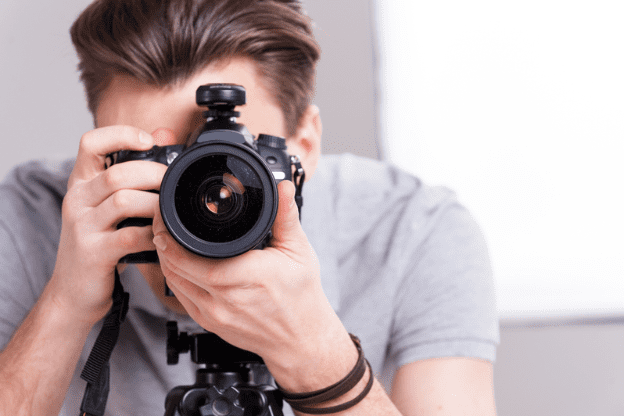
The journey into photography begins with selecting a camera that matches your needs and aspirations. In 2024, several models stand out due to their user-friendly features and outstanding performance.
The Canon EOS Rebel T7i, also known as the 800D outside the US, is a fantastic choice for beginners. It boasts a 24.2MP APS-C sensor, which delivers high-quality images. The Dual Pixel autofocus system ensures fast and accurate focusing, perfect for both still photography and videos. With an intuitive touchscreen interface and a guided user mode, it simplifies learning for novices.
The Nikon D3500 remains a top pick for beginner photographers. This DSLR offers a 24.2MP APS-C sensor and an impressive battery life that allows you to take up to 1,550 shots on a single charge. Its lightweight design makes it easy to handle, and the Guide Mode provides step-by-step assistance, making it ideal for those new to photography. The D3500’s robust build and reliability make it a solid investment for beginners.
For those interested in mirrorless cameras, the Sony Alpha a6000 is a stellar option. It features a 24.3MP APS-C sensor and an incredibly fast autofocus system with 179 phase-detection points. The compact size and lightweight body are great for travel and everyday use. Additionally, the a6000 offers Wi-Fi connectivity, allowing easy sharing and transferring of photos. Its versatile nature makes it suitable for various photography courses and styles.
The Fujifilm X-T200 combines classic design with modern features. It has a 24.2MP APS-C sensor and a large, high-resolution EVF. The vari-angle touchscreen is perfect for vlogging and selfies, while the advanced SR Auto mode adjusts settings automatically for optimal results. The X-T200’s film simulation modes offer a unique aesthetic, and its overall user-friendly interface is excellent for beginners. Photography institutes often recommend this model for its balance of style and functionality.
The Olympus OM-D E-M10 Mark IV is another superb choice for beginners. It features a 20MP Micro Four Thirds sensor, in-body image stabilization, and a flip-down touchscreen. This camera is perfect for those who want to delve into creative photography, with multiple art filters and scene modes. Its compact design makes it easy to carry, and it’s often highlighted in camera courses for beginners due to its versatility and ease of use.
The Olympus OM-D E-M10 Mark IV is another superb choice for beginners. It features a 20MP Micro Four Thirds sensor, in-body image stabilization, and a flip-down touchscreen. This camera is perfect for those who want to delve into creative photography, with multiple art filters and scene modes. Its compact design makes it easy to carry, and it’s often highlighted in camera courses for beginners due to its versatility and ease of use.
To truly master photography, enrolling in a reputable photography institute or course can provide valuable knowledge and hands-on experience.
The RSFI Institute is renowned for its comprehensive photography courses. Whether you are a novice or looking to refine your skills, RSFI offers tailored programs that cover everything from basic techniques to advanced photography. Their hands-on approach and experienced instructors make it one of the best photography institutes for beginners.

If you prefer online learning, numerous platforms offer excellent photography courses for beginners. Websites like Udemy, Coursera, and Skillshare host a variety of courses that cover fundamental principles, camera settings, composition techniques, and post-processing. These courses allow you to learn at your own pace and practice with your new camera.
Read About: Landscape Photography Tips: Capturing the Great Outdoors.
Specific camera courses for beginners are also beneficial. These courses focus on understanding your camera’s features and functions, enabling you to maximize its potential. Many camera manufacturers, such as Canon, Nikon, and Sony, offer online tutorials and workshops tailored to their models, helping you get the most out of your investment.
Choosing photography as a course of study can open doors to numerous career opportunities. Many universities and colleges offer degree programs in photography, covering a wide range of topics from commercial photography to photojournalism. Studying photography formally provides a solid foundation and exposure to various genres and techniques.
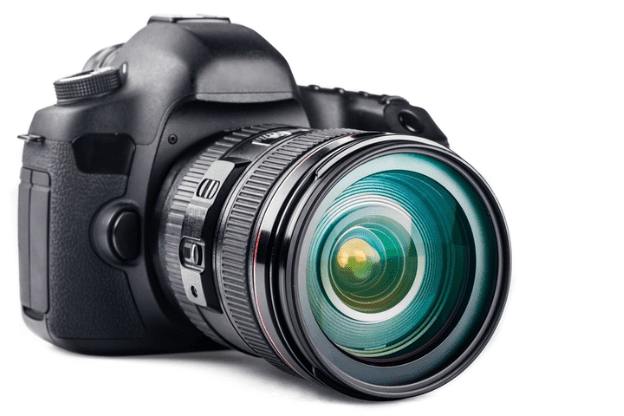
Investing in a good camera is crucial for several reasons. Firstly, it allows you to capture high-quality images with greater detail and clarity. Secondly, a reliable camera offers better control over settings, enabling you to experiment and learn effectively. Lastly, a good camera is an investment in your creative journey, providing the tools needed to hone your skills and express your artistic vision.
Choosing the right camera involves considering several factors. Here are some tips that will help you make an informed decision: Determine your budget: Decide how much you are willing to spend. Entry-level cameras vary in price, so keeping a budget in mind will narrow your options. Consider your needs: Consider what you want to achieve with your camera. Are you interested in photography, videography, or both? This will influence your choice of camera type and features. Ease of use: For beginners, a user-friendly interface and guided modes are essential. Look for cameras with intuitive controls and helpful features that make learning simple.
Read reviews and comparisons of different models. User feedback can provide insights into the camera’s performance and reliability
Consider cameras that offer room for growth. As you advance in your photography skills, having a camera that can accommodate more advanced features will be beneficial.
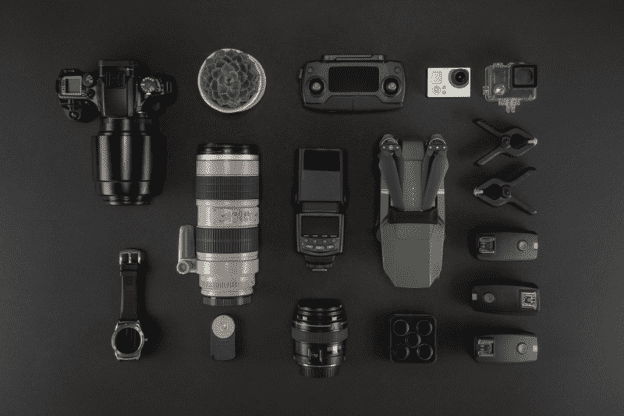
In addition to a good camera, several accessories can enhance your photography experience. Investing in these items can improve the quality of your photos and make shooting more convenient.
• Lenses: Depending on your interests, different lenses can dramatically change the way you capture images. For instance, a wide-angle lens is great for landscapes, while a macro lens is ideal for close-up shots.
• Tripods: A sturdy tripod is essential for long exposure shots and stabilizing your camera in low light conditions.
• External Flash: An external flash provides better lighting control, especially in low light scenarios.
• Camera Bag: Protect your gear with a durable camera bag. Look for one that is comfortable to carry and has compartments for organizing your equipment.
• Memory Cards: Ensure you have high-speed memory cards with sufficient storage capacity. This is particularly important when shooting in high-resolution formats.
Read About: 6 Key Reasons Why Our Photography Course Will Elevate Your Skills
Proper maintenance of your camera is important to ensure its longevity and performance. Here are some tips to keep your camera in top condition: Regular cleaning: Clean your camera body and lens. Avoid touching the sensor directly. Safe storage: Keep your camera in a dry, cool place. Use a protective case to prevent dust and damage. Battery care: Fully charge your batteries before use and don't expose them to extreme temperatures. Firmware updates: Check for firmware updates from the manufacturer and install them to keep your camera working optimally.
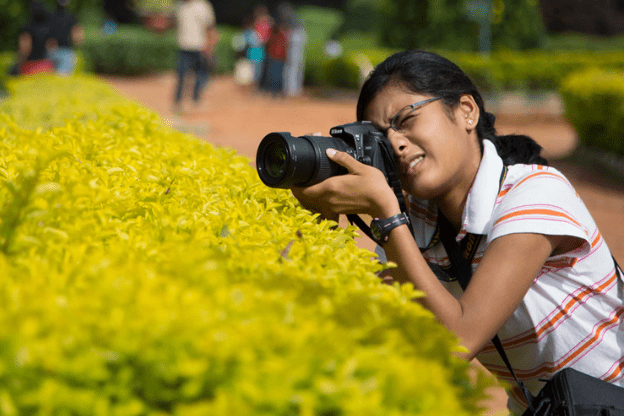
The internet is a treasure trove of resources for beginner photographers. Here are some recommendations to further your learning:
Combined acting and filmmaking courses provide an integrated learning approach, allowing students to understand both sides of the camera. This holistic education can reduce anxiety by demystifying the filmmaking process and fostering a collaborative mindset.
• YouTube Tutorials: Channels like Photography Pro, Digital Photography School, and Peter McKinnon offer valuable tips and tutorials.
• Photography Blogs: Follow blogs like PetaPixel, Fstoppers, and DPS for insights, reviews, and inspiration.
• Books: Consider reading books like “Understanding Exposure” by Bryan Peterson and “The Photographer’s Eye” by Michael Freeman to deepen your knowledge.
As a beginner, experimenting with different photography genres can help you discover your passion. Here are some popular genres to explore:
Portrait Photography: It focuses on capturing the personality and mood of individuals or groups.
Landscape Photography: Involves capturing natural scenes, often emphasizing the beauty of the environment.
Macro Photography: Focuses on extreme close-ups, revealing details that are not visible to the naked eye.
Street Photography: Captures candid moments in public places, often highlighting the human condition.
Wildlife Photography: Involves photographing animals in their natural habitats, requiring patience and skill.
Post-processing is an integral part of modern photography. Learning to edit your photos can enhance their quality and bring your creative vision to life. Software like Adobe Lightroom and Photoshop are industry standards for photo editing. Many photography courses for beginners include modules on post-processing, providing a comprehensive understanding of the workflow from capture to final image.
Read About: Creating Visual Storytelling: Cinematography vs. Videography
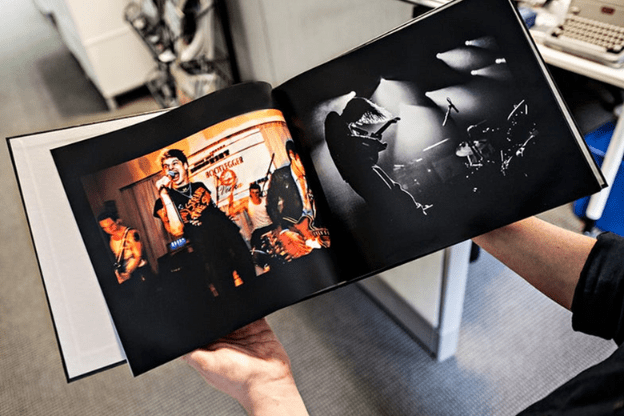
Creating a portfolio is essential for showcasing your work and progress. Start by selecting your best images and organizing them into a cohesive collection. Your portfolio should reflect your style and interests, demonstrating your skills to potential clients or institutes. As you continue to learn and improve, update your portfolio regularly.
Joining a photography community can be incredibly beneficial. Engaging with fellow photographers allows you to share experiences, receive feedback, and stay motivated. Online forums, social media groups, and local photography clubs are excellent places to connect with like-minded individuals. Attending workshops and seminars hosted by photography institutes can also provide valuable networking opportunities.
Embarking on your photography journey is an exciting adventure filled with creativity and discovery. Choosing the right camera is the first step, and with the options available in 2024, beginners have never had it better. Coupled with guidance from a reputable photography institute or course, the right equipment can unlock your potential and transform your passion into a rewarding pursuit.
Remember, the best camera for beginners is one that fits your needs, inspires you to learn, and helps you capture the world through your unique lens. Happy shooting!
The best cameras for beginners in 2024 include the Canon EOS Rebel T7i, Nikon D3500, Sony Alpha a6000, Fujifilm X-T200, and Olympus OM-D E-M10 Mark IV. These models offer user-friendly features, excellent image quality, and affordability.
The Canon EOS Rebel T7i is a great choice for beginners due to its 24.2MP APS-C sensor, Dual Pixel autofocus system, and intuitive touchscreen interface. It also includes a guided user mode that simplifies learning for novices.
When choosing a camera for beginners, consider factors such as budget, ease of use, camera type (DSLR or mirrorless), future-proofing potential, and user reviews. It's important to select a camera that meets your specific needs and learning style.
Beginners should consider investing in accessories like additional lenses, a sturdy tripod, an external flash, a durable camera bag, and high-speed memory cards. These accessories can enhance your photography experience and improve the quality of your photos.
Joining a photography institute can provide structured learning, hands-on experience, and access to experienced instructors. Institutes like RSFI offer comprehensive courses that cover various aspects of photography, helping beginners build a strong foundation and advance their skills.